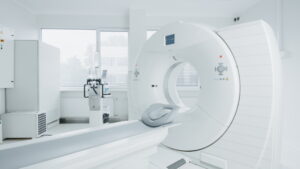Physicians have multiple imaging tools to detect and diagnose many conditions including cancer. Simple X-rays to provide information about broken bones to the most sophisticated nuclear scans are available, but will a PET scan show all cancers?
What Is Positron Emission Tomography?
Positron emission tomography, or a PET scan, is a form of nuclear medicine. This test uses a tracer with low levels of radiation injected into an arm or hand. It creates a 3D color picture of the inside of the body from the radioactive drug that highlights areas where cells are especially active. This activity can mean the cells are cancerous.
Radioactive tracers concentrate on tumors or parts of a tumor that is inflamed like a “hot spot,” but it may not always show if the tumor is cancerous. An inflammation may be due to another issue. That’s why PET scans need a specialized technician known as a radiologist like Southwest Diagnostic Center for Molecular to read them. Some non-cancerous areas can look like cancer.
Your doctor may recommend a PET test if cancer is suspected on either an MRI or a CT scan done previously.
What Are the Advantages of PET Scans?
The many benefits of PET scans include the following:
- They can detect some cancers earlier than other tests.
- They can give information about the spread and staging of cancer.
- They can provide information about where cancer has spread.
- They can indicate if treatments are working or if changes need to be made.
- They can provide recurrence information.
In addition, the test is painless and is performed on an outpatient basis.
A PET scan can diagnose brain disorders like tumors, seizures, and Alzheimer’s Disease plus certain heart conditions like decreased blood flow.
Limitations of Positron Emission Tomography
Not all cancers or cancer types can be seen with a PET scan.
Your physician may need additional tests like a PET with an MRI, or a PET with a CT scan to get a conclusive diagnosis. The same is true of certain solid cancer tumors.
Women who are pregnant or breastfeeding should not have a PET scan.
Those who had a previous allergic reaction to a tracer should not get a PET scan, nor should someone with diabetes.
The benefits of a PET scan far outweigh the risks.
Contact Southwest Diagnostic Center for Molecular at (214) 345-8300 if you have other questions or concerns about an upcoming PET scan at our clinic in Dallas.

